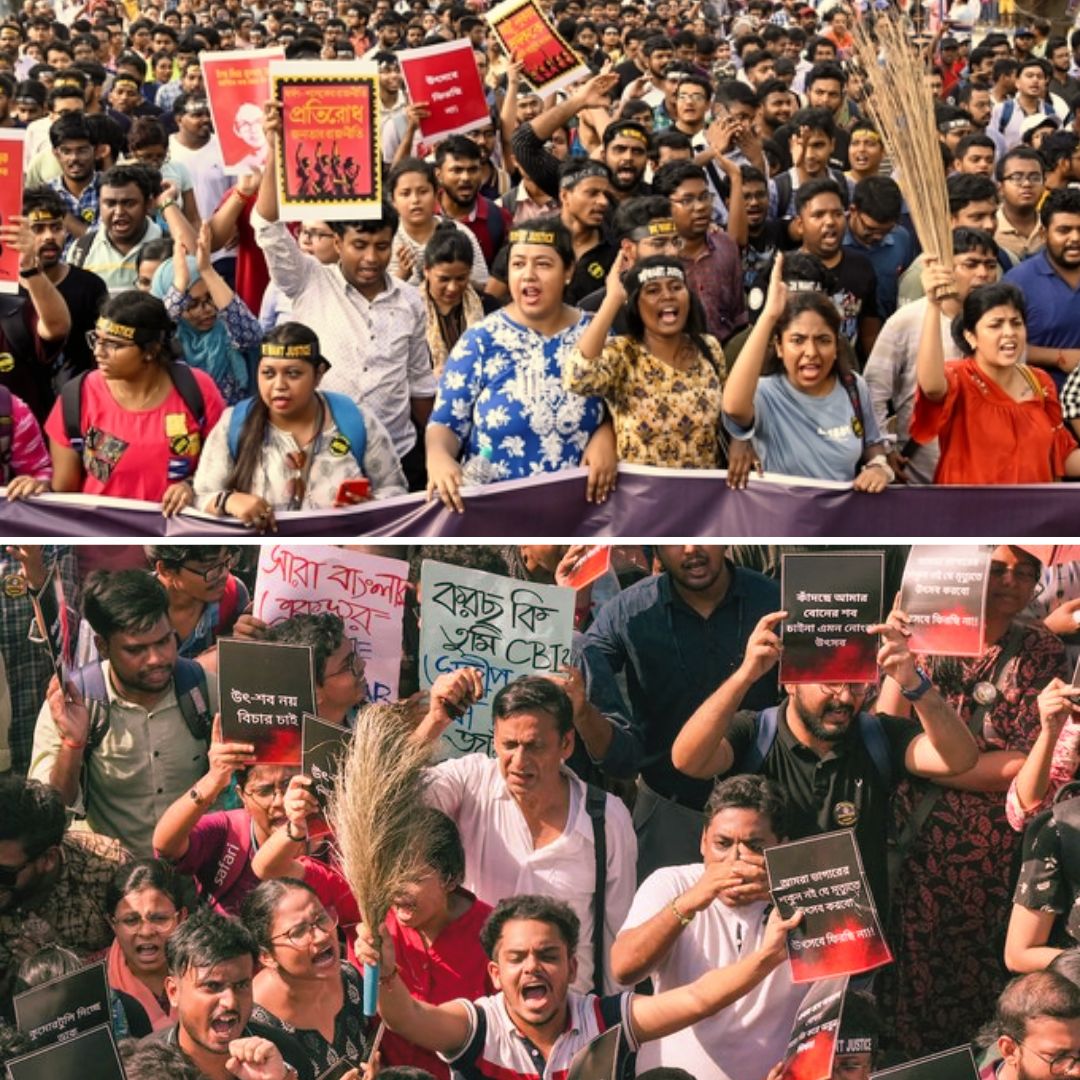Three junior doctors—Dr Debashis Haldar, Dr Aniket Mahato, and Dr Asfaqullah Naiya—who led protests following the alleged rape and murder of a postgraduate trainee at Kolkata’s RG Kar Medical College in August 2024, have accused the West Bengal Health Department of transferring them to remote district hospitals as a punitive measure.
Their original postings, based on merit, were changed abruptly to Malda, Purulia, and North Dinajpur, sparking renewed protests and drawing criticism from medical associations and political leaders. Health officials assert that the transfers are routine and not linked to the doctors’ activism, but calls for transparency and fairness continue to grow.
Doctors Allege ‘Punitive Transfers’ and Demand Accountability
On Monday, the three doctors, supported by colleagues and members of the West Bengal Doctors Forum (WBDF), staged a sit-in protest outside the state Health Department headquarters in Kolkata. The protest intensified when principal health secretary N S Nigam reportedly left the premises without meeting the aggrieved doctors.
Dr Aniket Mahato, who was originally posted to Hooghly, said, “We are willing to serve anywhere, but the process must be transparent and based on merit. These transfers appear to be a direct response to our role in the protests.” Dr Debashis Haldar, who had been allotted Howrah District Hospital, was reassigned to Gajole in Malda, despite no official vacancy being declared there—a move the WBDF described as “punitive and politically motivated.”
Dr Asfaqullah Naiya, similarly, was transferred to North Dinajpur. The WBDF and other medical bodies have demanded that the transfers be revoked and that the Health Department provide a clear explanation for its decisions.
Context: Protests, Political Fallout, and Pattern of Transfers
The controversy is rooted in the aftermath of the tragic August 2024 incident, which saw a postgraduate trainee at RG Kar Medical College allegedly raped and murdered, triggering widespread outrage and the largest medical protest Kolkata has seen in years. The three doctors emerged as key leaders, organising marches, sit-ins, and dialogue with state authorities.
Their activism led to a high-profile meeting with Chief Minister Mamata Banerjee and forced the administration to promise reforms and improved safety measures for medical professionals. However, since then, at least 42 doctors associated with the protest movement have reportedly been transferred to remote postings across West Bengal.
Medical associations, including the United Doctors Front Association (UDFA) and the WBDF, allege a systematic attempt to silence dissent and undermine the merit-based counselling system. Opposition parties have also weighed in, accusing the state government of using administrative tools to intimidate and punish those who challenge the status quo.
Stakeholders Respond: Calls for Transparency and Justice
Officials from the West Bengal Health Department maintain that all transfers are part of routine administrative procedures and are necessary to meet staffing needs in under-served districts. “There is no question of targeting individuals for their participation in protests,” a spokesperson said.
However, the lack of transparency in the transfer process and the timing—immediately following the doctors’ activism—have raised serious concerns. The WBDF has stated, “We stand with our colleagues and demand that the Health Department reinstate Dr Haldar and others to their merit-based postings. Such punitive transfers undermine trust in the system and discourage future whistleblowers.”
Political leaders from opposition parties have called for an independent inquiry into the transfers, while the affected doctors continue to demand a meeting with senior health officials to address their grievances.
The Logical Indian’s Perspective
The Logical Indian strongly believes that the right to protest and demand justice must be protected, especially in institutions that serve the public good. When those who speak out for justice face punitive measures, it not only undermines their morale but also sends a chilling message to others who might wish to raise their voices.
Transparency, fairness, and empathy should guide all administrative decisions, particularly in the healthcare sector where trust and integrity are paramount. We urge the authorities to review these transfers with a commitment to due process and to ensure that merit and justice are not compromised. How can we, as a society, better protect those who stand up for what is right—especially within our vital public institutions?










